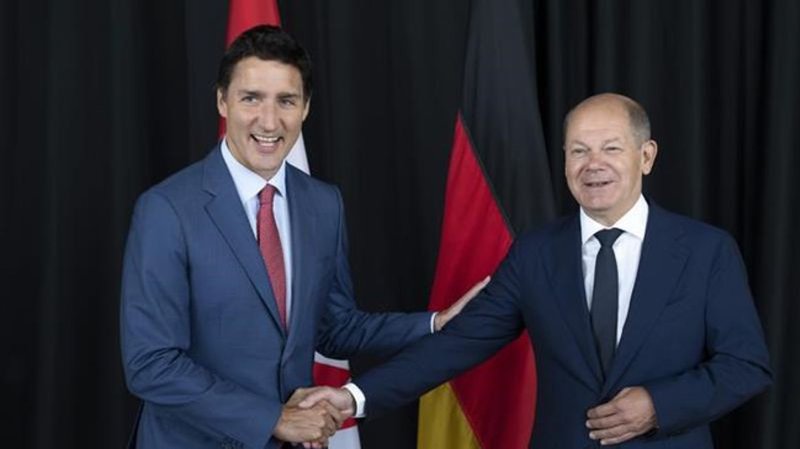
Ottawa to sign MOUs with Mercedes-Benz, Volkswagen on materials for electric vehicles
TORONTO — Ottawa is expected to sign separate agreements with Volkswagen and Mercedes-Benz on Tuesday that will see the two German auto manufacturers secure access to Canadian raw materials for batteries in electric vehicles.
Prime Minister Justin Trudeau and German Chancellor Olaf Scholz are expected to observe the signing ceremony in Toronto on the second day of a three-day visit by the German leader, who replaced Angela Merkel in December.
The two memorandums of understanding will involve securing Canada’s place in the two companies’ supply chains when it comes to building electric vehicles, according to a senior government official.
That includes the provision of Canadian cobalt, graphite, nickel and lithium needed for EV batteries, said the official, who spoke on condition they not be identified because the agreements had not yet been signed.


